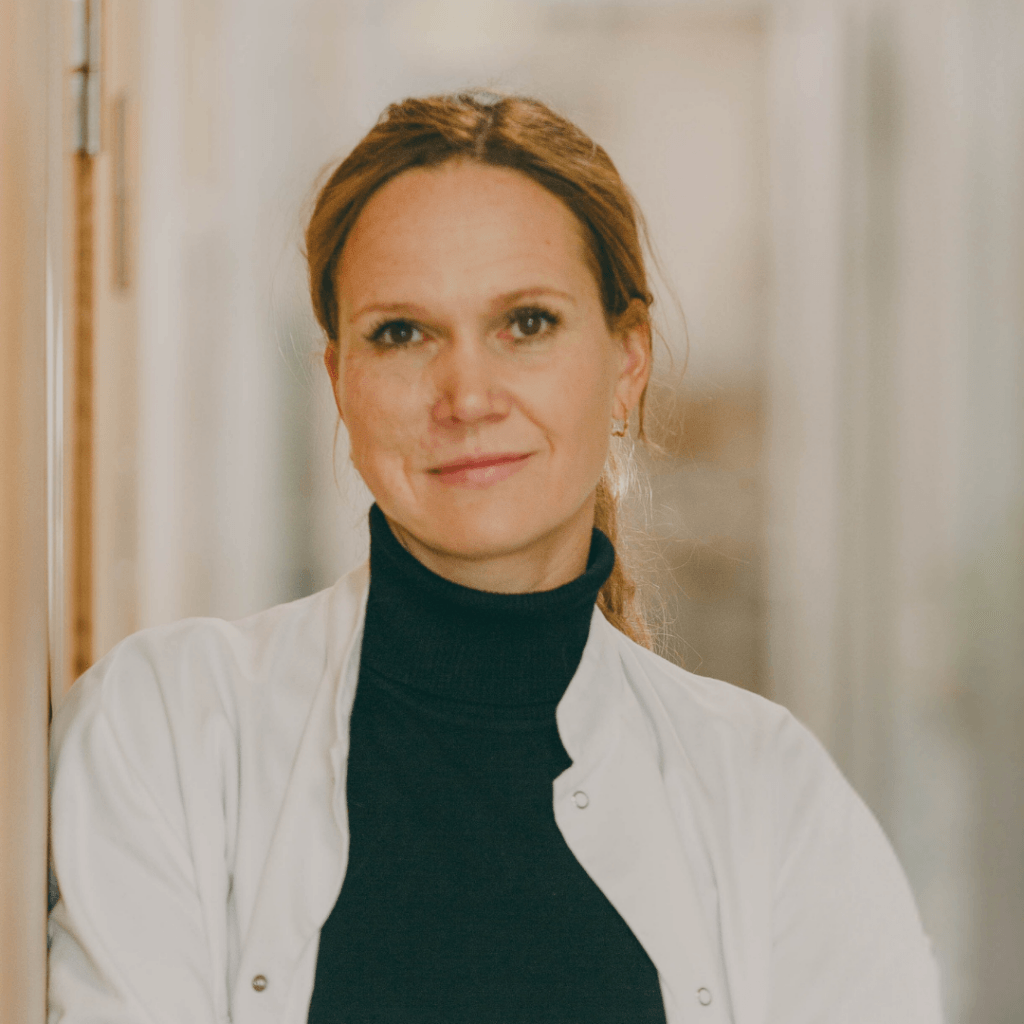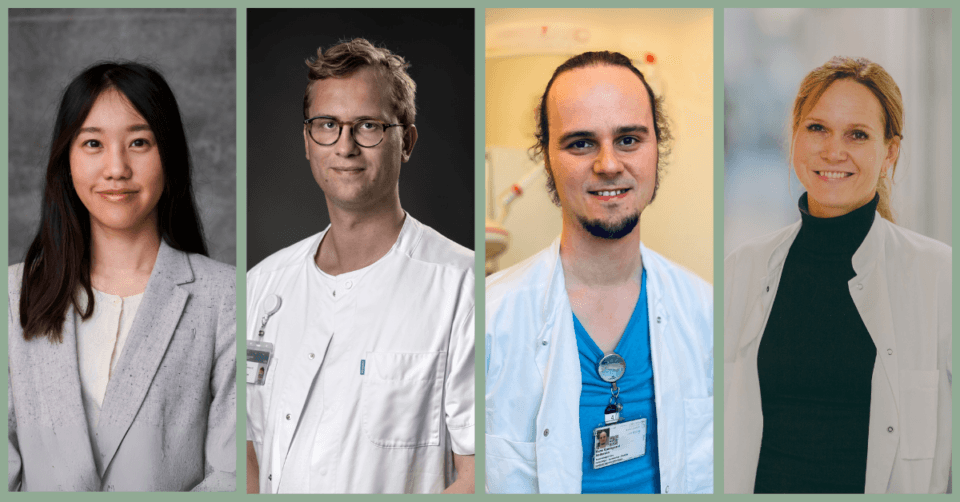From left: Postdoc Wenning Zheng, M.D. and Senior Researcher Nikolai Loft, M.D. and Research Manager Rune Kjærsgaard Andersen, and M. D. and Assistant Professor Stinne Ravn Greisen
4 November 2024
The LEO Foundation has awarded four emerging skin research talents with the prestigious Dr Abildgaard Fellowships, each worth DKK 12 million for a five-year period.
Wenning Zheng from the University of Copenhagen, Stinne Ravn Greisen from Aarhus University and Nikolai Loft and Rune Kjærsgaard Andersen, the two latter both from Copenhagen University Hospitals – Herlev and Gentofte are this year’s skin researchers to receive a LEO Foundation Dr Abildgaard Fellowship.
“We are very pleased to be able to support such excellent research talents in their ambition to establish or expand an independent research group at a Danish research institution, while also positioning themselves as research leaders. Each of the four fellows has impressed both international expert reviewers and our Grant Committee with their visions and plans for their skin research,” says Anne-Marie Engel, Chief Scientific Officer at the LEO Foundation, and continues:
“The LEO Foundation Dr Abildgaard Fellowship recognizes the outstanding potential of these four new fellows as emerging research leaders in their field. We are confident that they will play a significant role in the future of skin research. We very much look forward to following their work at Danish institutions.”
Supporting emerging research leaders
With the LEO Foundation Dr Abildgaard Fellowships, the LEO Foundation supports talented, emerging research leaders who are ready to establish or expand their own research groups at Danish research institutions. The LEO Foundation Dr Abildgaard Fellowships offer stable funding of DKK 12 million (EUR 1.6 million), distributed over a five-year period.
In 2024, it was possible to apply for LEO Foundation Dr Abildgaard Fellowships within one of two themes:
Advanced Therapeutics Research in Skin Diseases, and Systems Medicine in Dermatology.
The LEO Foundation introduced the LEO Foundation Dr Abildgaard Fellowships program in 2023. The Fellowships program is named after Dr. Knud E. Abildgaard, the founder of the LEO Foundation.
Meet the Dr Abildgaard Fellows 2024
Bioinformatician Wenning Zheng, Postdoc at the LEO Foundation Skin Immunology Research Center, University of Copenhagen, receives a fellowship for her research to understand the role of immune cells in inflammatory skin disorders.
Her project focuses on identifying rare, aggressive T cells in the blood of patients with eczema, psoriasis, and psoriatic arthritis. These T cells, known to reside in the skin, may circulate through the blood and affect other organs, linking skin diseases with other conditions like asthma and arthritis. By using advanced assays, single-cell sequencing, and machine learning, Wenning Zheng aims to discover the specific antigens recognized by these T cells to develop better diagnostic and treatment tools for skin diseases.
From 1 January 2025 Wenning Zheng will be Assistant Professor.
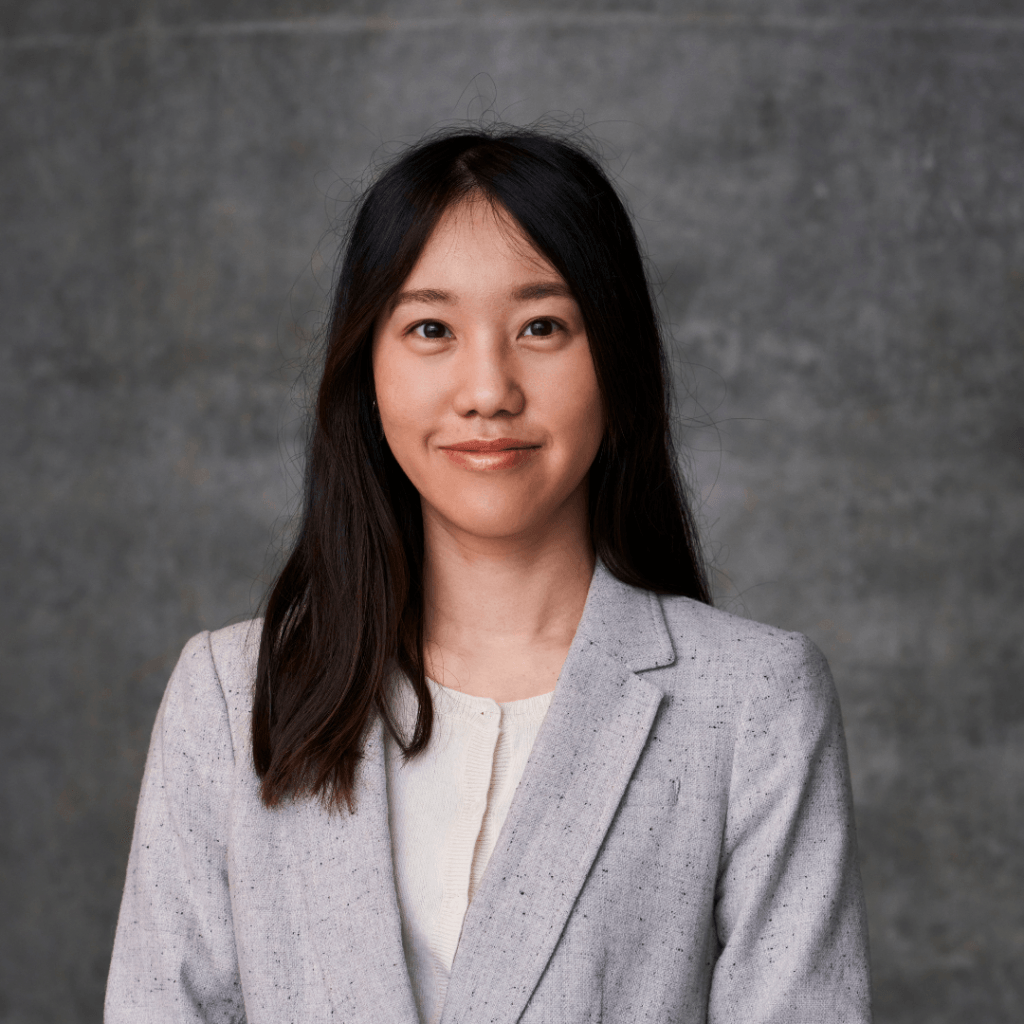
MD Nikolai Loft, Senior Researcher at the Department of Dermatology and Allergy – Herlev and Gentofte Hospital receives a fellowship for his research to optimize treatment of psoriasis by personalizing approaches based on individual patient characteristics and needs.
His project aims to identify markers that predict treatment failure and the development of psoriatic arthritis (PsA), leveraging Denmark’s national registries and new biological samples from over 1,000 patients. The goal is to develop models to adjust treatment strategies, improve long-term outcomes, and reduce healthcare costs by preventing PsA and enhancing treatment effectiveness.
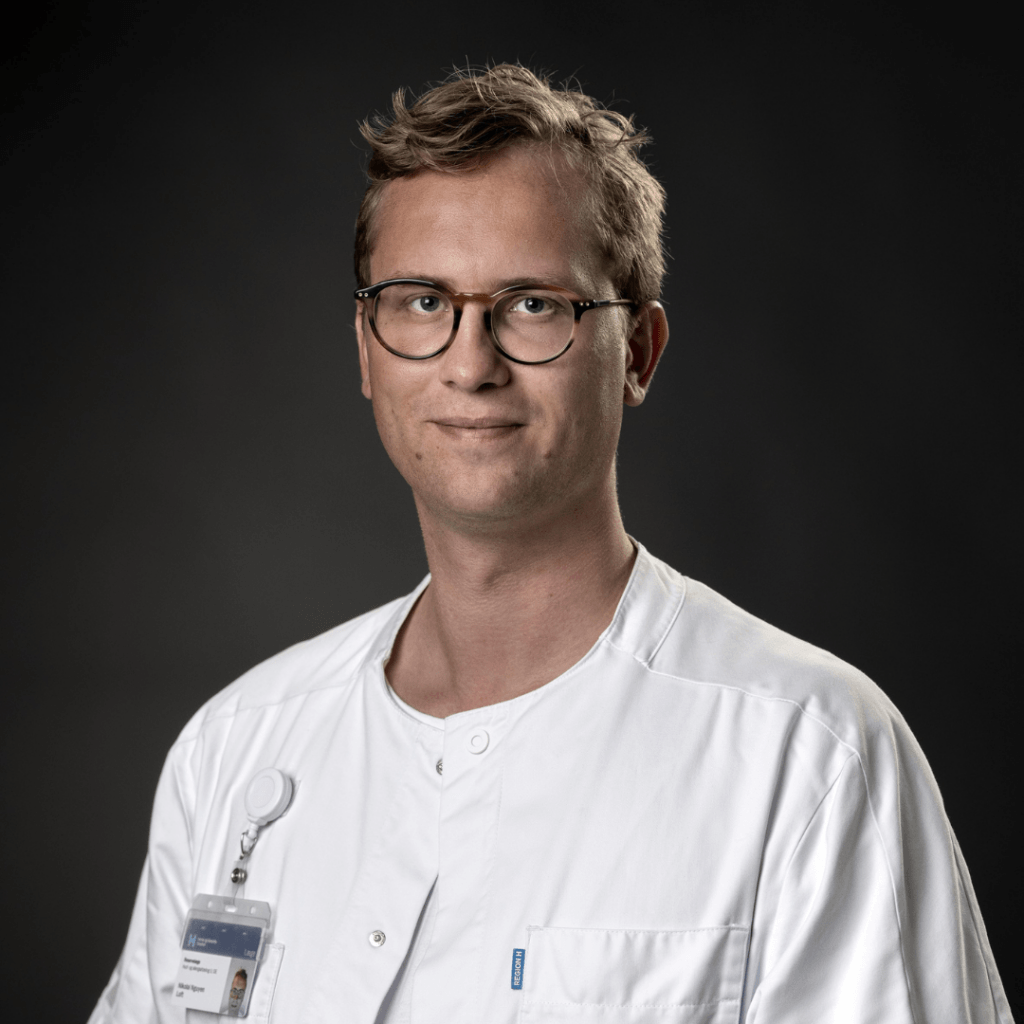
MD and Postdoc Rune Kjærsgaard Andersen receives a fellowship for his exploration of improving care for patients with hidradenitis suppurativa, a chronic skin disease affecting 1% of the global population.
His goal is to develop personalized risk assessments for disease progression and development of severe complications, enabling early preventive treatment. Using large clinical cohorts and advanced techniques in data analysis, genetics, and biomedicine, Rune Kjærsgaard Andersen aims to identify risk factors and create predictive algorithms. This shift from treatment to prevention will improve patient outcomes and reduce healthcare costs, ultimately advancing personalized medicine in dermatology.
Rune Kjærsgaard Andersen will be promoted to Group Leader and Research Manager at the Department of Dermatology and Allergy – Herlev and Gentofte Hospital.
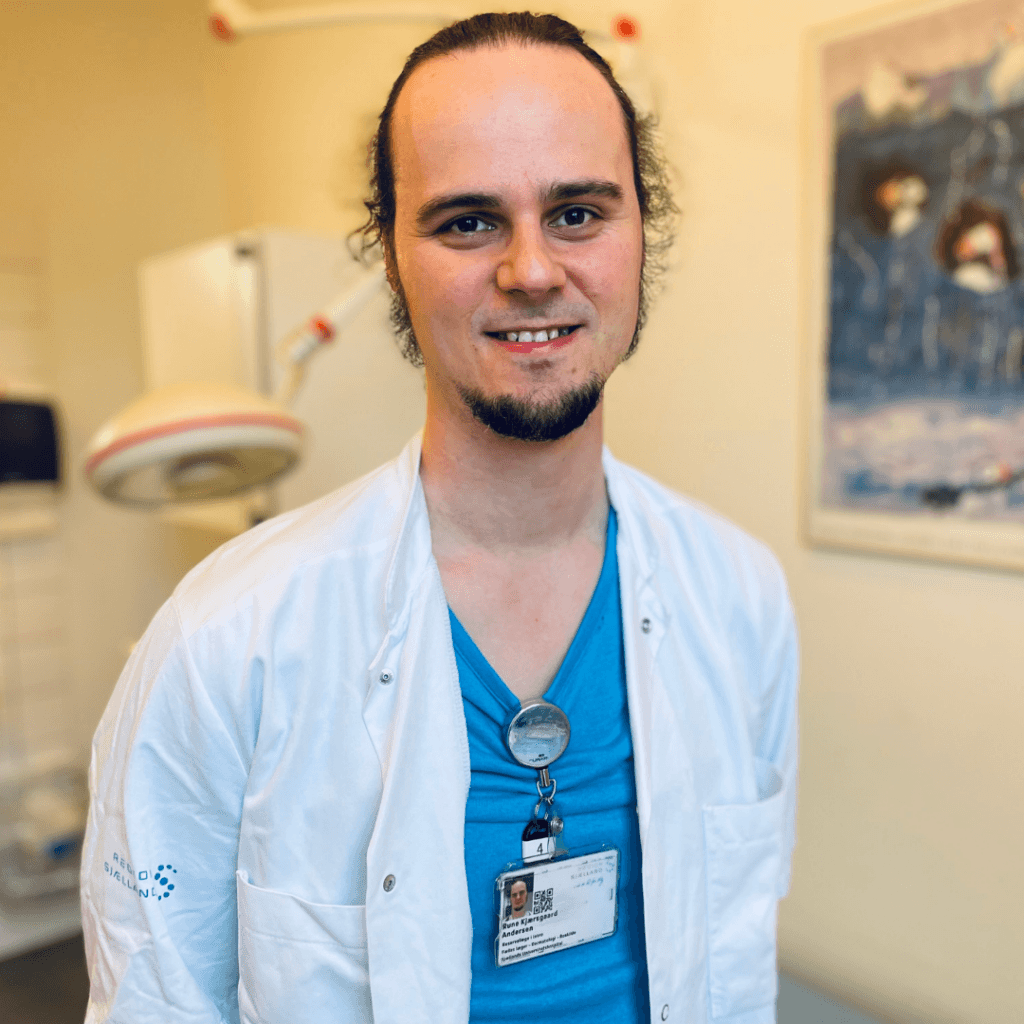
MD Stinne Ravn Greisen, Assistant Professor at the Department of Biomedicine, Aarhus University also receives a fellowship where she will be researching new treatments for skin fibrosis, a condition that causes thick, stiff skin and lacks effective treatment.
Her research project explores how immune system regulatory pathways contribute to skin fibrosis in diseases like scleroderma and keloid scarring. Stinne Ravn Greisen will study skin samples, develop a skin model to test treatments, and use a mouse model to better understand fibrosis development. The research aims to uncover immune mechanisms behind fibrosis and lead to improved treatments for patients, benefiting those with various inflammatory and fibrotic conditions.
